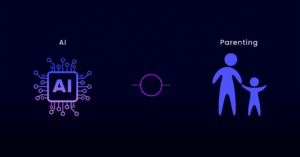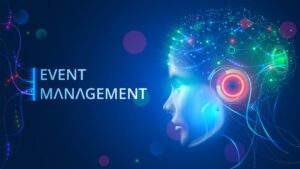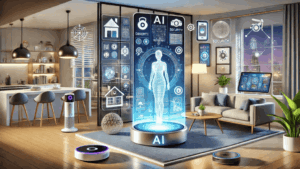From shopping to medical decisions, artificial intelligence plays a prominent role in assisting us daily. AI has become useful to its users, but its smooth integration into society has put humanity’s welfare at risk. With the amount of trust we now place on AI, it has outgrown the boundaries of convenience to dictate our behaviors, affect our decisions, and influence parts of our lives without our acknowledgment. Unfortunately, the public remains unaware of the darker aspects of this evolution.
Accepting AI’s assistance in our vehicles, phones, and homes comes at the cost of sailing into uncharted territory filled with unknown risks and problems left unresolved. Relying on AI brings trust issues surrounding ethical boundaries, responsibilities, and consequences. This AI-less world shows the lack of protection provided in matters related to personal data, AI-generated or altered content, and discriminatory biases. This article aims to explore AI’s negative impact, along with the trusting relationship we now have with it.
The decline of Private Data in the Age of Artificial Intelligence:
The most worrisome effect of AI technology is the constant data harvesting perpetuated by smart devices like phones, speakers, watches, and TVs. AI knows exactly how to process our search queries, voice commands, facial expressions, location, and emotional states. AI processes all these variables and more. Although these features may seem beneficial, AI’s data collection through smart devices is accumulating a vast trove that could be used to construct meticulous behavioral profiles that are easily sold, hacked, or misused.
Corporations and governments make use of AI to predict consumer behavior for marketing, and it is sometimes used for social profiling. The most troubling part is that users tend to say yes to vague privacy agreements and ads. This creates a paradoxical problem for users where privacy and ability become vastly blurred, mainly at the user’s expense.
Discrimination and Algorithmic Bias Silently Driven by Automation:
Automation is lacking impartiality due to imbalances in data sets used for training. Furthermore, the implementation and marketing of AI systems have made biased discrimination a significant issue. Bias needs attention, as seen in hiring algorithms based on demographics, preposterous facial recognition, and racially biased AI. Even though AI is a powerful tool, economics always portrays it as impartial and flawless.
While biases may not be apparent to end users, the implications may be extremely harmful. An example of such harm could be an individual being refused a loan, job, or insurance policy because of a biased algorithmic decision-making process, and they have no understanding of the reasoning behind it. The “black box” problem, where automated AI systems fail to explain their reasoning or decision-making process to end users, hinders users from challenging or comprehending these automated decisions.
Misinformation and Manipulation in the Age of Generative AI:
Generative AI applications have significantly simplified the process of creating deepfakes, fake news articles, or misleading pictures. Through the use of AI technologies, content is able to be created based on mimicking real individuals, and that fabricated content can be spread around social media at an astonishing rate. If misused, artificial intelligence is a powerful tool of trickery.
We have already seen the use of AI-manipulated voices to impersonate a family member or a loved one to defraud people, incite social unrest, and interfere with elections. Every day, with the accessible nature of generative AI, society is slowly losing its grasp on the difference between what is real and what is not, which puts public confidence and democracy itself at risk. Most ordinary people, without their knowledge, fall prey to this deadly deception and unknowingly become its agents.
Surveillance and Control in Smart Cities and Homes:
The advent of artificial intelligence (AI) technologies has facilitated access to more surveillance in public and private places. Smart cities use AI for traffic management, security camera monitoring, and regulation enforcement. However, governments can easily repurpose these technologies for mass surveillance. Governments around the globe now widely use AI-based systems to track movements and conversations and ensure social conformity.
In the private sphere, AI assistants such as Alexa, Siri, or Google Assistant are virtually active 24/7, waiting to offer any help, whether we ask for it or not. While these tools aim to assist us, they are also data gateways. The integration of facial recognition, voice recognition, and predictive behavioral technologies with AI nullifies the concept of personal space.
Loss of Human Agency and the Rise of Machine Dependency:
We start surrendering control of our lives to devices when we allow AI to handle more and more of our day-to-day life activities. For instance, deciding what content to view, what items to purchase, and, in extreme scenarios, dictating what should be said. Serious concerns arise about the loss of autonomy. For instance, an algorithm that recommends actions consistently prioritizes engagement or profit over our well-being. He is slowly oppressing society, substituting predestined, obtrusive recommendations for spontaneity, free will, and decision-making.
This dependency blunts not only agency but also skills and thinking. For example, navigation apps have eroded our directional acuity. Likewise, recommendation engines limit our exposure to new or challenging concepts. Eventually, we may lose the ability to operate without AI’s help, pairing dependency with vulnerability and control.
Conclusion:
Surely, AI provides exceptional opportunities for creativity and increased productivity, but its application in daily life comes at significant and often unseen costs. The hidden harm of AI is not a fictional narrative — it exists in technologies we interact with, the places we go, and the decisions we make each day. It is critical to stay aware and educated so that we do not give up our personal information, autonomy, or even humanity under the guise of convenience. Right now is the moment to challenge, restrict, and reconsider how we permit AI to determine our reality. Moving forward, there is a need to achieve the opposite — that technology can be useful without turning us into its prisoners.
FAQs:
1. What is the biggest risk of using everyday AI?
The most significant danger is privacy and personal freedom due to perpetual surveillance and automated decision-making, which users do not know is happening.
2. How does the bias in AI systems impact the real world?
Bias in AI systems can result in health care discrimination, racial profiling, inequitable banking, and discriminatory hiring practices by enforcing bias present in society within the system’s primary datasets.
3. Can we trust AI content?
The statement is not entirely accurate. One must fact-check the claims and use reputable institutions, as AI pronouncements have the potential to propagate falsehoods.
4. Is AI surveillance allowed by law?
Jurisdiction differs, but in numerous jurisdictions there is little to no regulation, leading AI surveillance systems to function unchecked, which is usually outside the law in relation to human rights surveillance.
5. How can individuals mitigate the risks posed by AI?
Shielding from technology can be achieved by disabling location tracking, employing encryption technology, and not oversharing personal details through participation in social networking.




